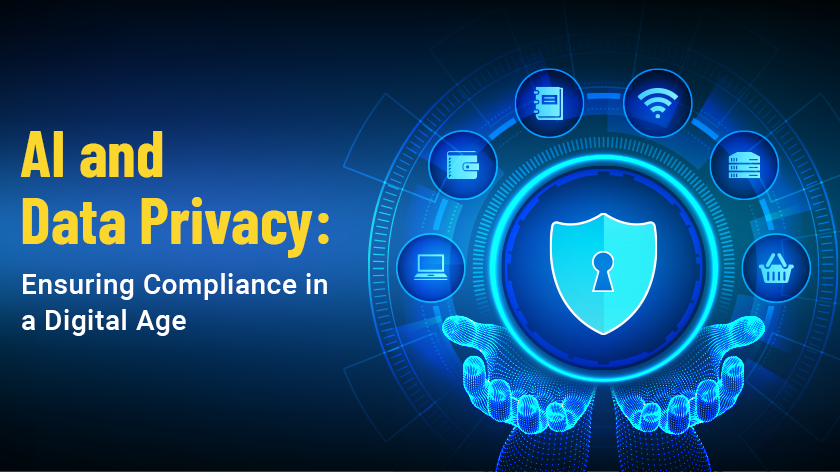In the digital age, the intersection of Artificial Intelligence (AI) and data privacy presents both opportunities and challenges for organizations. As AI technologies advance, the need to ensure compliance with data privacy regulations becomes increasingly critical. This blog explores the complexities of balancing AI innovation with safeguarding individuals’ privacy rights. We’ll discuss key strategies and best practices for navigating this evolving landscape and maintaining trust in the era of data-driven decision-making.
Understanding Data Privacy Regulations:
- GDPR (General Data Protection Regulation): This EU regulation focuses on the protection of personal data of individuals within the European Union and the European Economic Area.
- CCPA (California Consumer Privacy Act): This California law enhances privacy rights and consumer protection for residents of California, United States.
- HIPAA (Health Insurance Portability and Accountability Act): This U.S. legislation sets the standard for protecting sensitive patient data.
- PDPA (Personal Data Protection Act): Implemented in various countries, PDPA regulates the collection, use, and disclosure of personal data.
Impact of AI on Data Privacy:
- Data Collection and Processing: AI systems often rely on vast amounts of data, raising concerns about the collection and storage of personal information.
- Algorithm Bias and Fairness: Biases in AI algorithms can lead to discriminatory outcomes, violating privacy and fairness principles.
- Privacy-Preserving AI Techniques: Methods like federated learning, homomorphic encryption, and differential privacy help preserve privacy while enabling AI innovation.
Ensuring Compliance:
- Data Minimization: Collect only the data necessary for the intended purpose and ensure its protection throughout its lifecycle.
- Consent Management: Obtain explicit consent from individuals before collecting their data, and provide clear information on how it will be used.
- Anonymization and Pseudonymization: Remove or obfuscate personally identifiable information to reduce the risk of identification.
- Transparency and Accountability: Maintain transparency about data practices and establish accountability measures for data handling.
- Regular Audits and Assessments: Conduct periodic audits and assessments to ensure ongoing compliance with relevant regulations.
Challenges and Future Directions:
- Global Compliance: Navigating a patchwork of international regulations poses challenges for multinational companies.
- Emerging Technologies: New AI and data analytics technologies constantly challenge existing privacy frameworks, necessitating agile regulatory responses.
- Ethical Considerations: Beyond legal compliance, organizations must also consider ethical implications and societal values when handling personal data.
Conclusion:
In the digital age, ensuring compliance with data privacy regulations is not only a legal requirement but also a fundamental aspect of building trust with customers and stakeholders. By adopting privacy-preserving AI techniques and robust compliance practices, organizations can navigate the complexities of data privacy while harnessing the power of AI for innovation and growth.
I’m part of XcelTec, and we specialize in helping organizations implement effective AI and data privacy solutions. Contact us today to learn how we can assist you in ensuring compliance and fostering innovation.
Contact us now: https://www.xceltec.com/
 :
https://www.xceltec.com/
:
https://www.xceltec.com/












